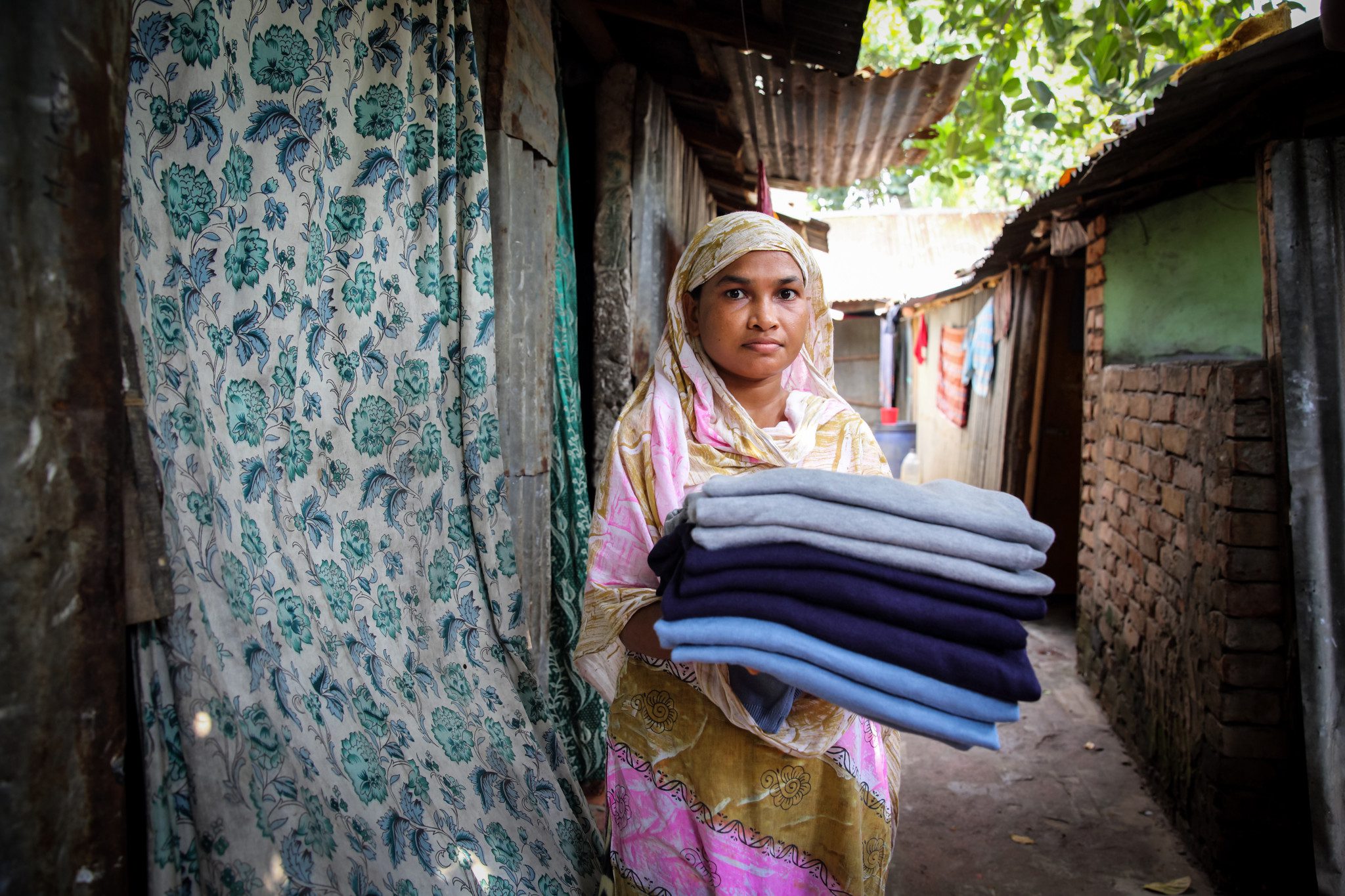Workers’ rights
We’re tackling poverty in the fashion industry.
Read our reports:
Made in Poverty: The True Price of Fashion (2019) — Full Report or Summary
What She Makes: Power and Poverty in the Fashion Industry (2017) — Full Report
Fast fashion has utterly changed the industry. With new trends coming out every week, the fast fashion industry urges consumers to buy as many garments as possible, as quickly as possible. The constant inflow of low-cost, low-quality garments means we are buying and disposing of more clothing than ever. This has a real effect on the women working in the ready-made garment industry, with huge pressure to deliver on orders.
Fashion is a booming industry, turning over $23.5 billion in Australia in 2018.
And yet, the women who make our clothes do not make enough to live on, keeping them in poverty. Despite long hours away from their families, working full time plus hours of overtime, big brands do not pay them enough money to cover the basics of life – food and shelter.
The women who make our clothes, like Fatima in Bangladesh, live in appalling conditions. She can’t afford a mattress, sleeping instead on the concrete floor of a tiny two-room apartment shared with 10 people.
Australian clothing brands like Kmart, Big W, Target and Cotton On are part of the system that has created this injustice. Big brands allow poverty wages so the women who make our clothes aren’t paid enough money to live on.
Research shows that right now, just 40 cents of the price of a $10 t-shirt goes towards the wages of workers like Fatima who made the t-shirt. It will cost less than 1% of the retail price – that’s less than 10 cents for a $10 t-shirt – for big brands do the right thing and pay living wages to the women who make our clothes.
It is now time for brands to publicly commit to paying living wages and we ask the brands to develop credible, transparent, time-bound plans to map out how they will achieve this goal.
A living wage is not a luxury or a privilege; it is a universal human right — for every working person around the world, including the women who make our clothes.
We all buy clothes and so we stand together with the women who make our clothes demanding to know #whatshemakes.
